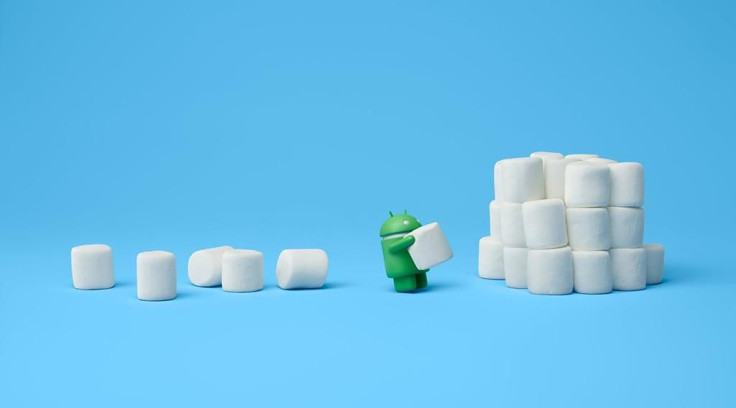Google Android Marshmallow Release Date Next Week: Here's Why You Should Care

Google has finally given Android 6.0 a release date. At a special event in San Francisco on Tuesday, the company revealed that Marshmallow, the name for the update, will begin rolling out next week. But what's new, and why should you care?
The update focuses more on small changes that improve the overall experience, rather than any major overhaul or redesign. This does not mean customers will have nothing to look forward to, though. "With Android 6.0 Marshmallow, we've gone back to the basics, to focus on improving the core user experience," said Dave Burke, VP of engineering at Google.
Even the launcher, the basic list of apps on every Android, is getting refinements. The launcher now has on-device predictive launching, which predicts which apps you launch at a specific time of day or sequence. The scrollbar now works on an A-Z system. Even the preloaded apps have been reduced: Over a quarter of the preloaded apps have been moved to a post-install phase, meaning they can be removed if the user wants to.
Android has extended voice controls to let users control built-in apps. Apps can now accept commands, with an onstage demonstration of an NPR app that can take hands-free commands. Voice search and actions also are accessible from the lock screen. "You just swipe from the left corner, and you get this beautiful material reveal animation, and you can simply say what you want," said Burke.
Supercharged Fingerprints
The update brings a new power management system called Doze that promises to greatly increase battery life. On the Nexus 5 and 6, battery life increases by 30 percent while the screen is off. The system also now includes USB-C support, which can charge phones up to five times faster. Android will even tell you how fast the phone is charging.
Android also is finally receiving native fingerprint recognition. This has been included with iOS since version 7, and various Android manufacturers have developed their own versions of fingerprint support, but this update will bring a single, cohesive solution to the platform. The support also will let customers complete purchases using Android Pay.
Permissions And Memory
Marshmallow also overhauls Android's app permissions system. Before, an app would list all the permissions it required at the download stage. Unlike iOS, you couldn't pick and choose what to allow for -- say, if you didn't want an app to access your contacts, but you were fine with it accessing your microphone. That's all changed with Marshmallow. Not only will you be asked before an app tries to access something, you can manage all these permissions from a single, unified list.
Memory management also is redesigned in Marshmallow. Whereas older versions of Android would involve a bit of guesswork to work out which app was hogging all the RAM, a memory tab now shows you at-a-glance which apps are the major culprits behind bad memory practices. It's a welcome change, and one that may encourage developers to become more resourceful with their apps.
Marshmallow looks like it makes welcome additions to an established platform. The release date is not exactly the point at which customers will be able to download the update, however. Android updates usually need modification for delivery to devices. As an example, the TouchWiz interface present on Samsung phones would have to be baked into any forthcoming updates in order to work. Google phones like the Nexus will most likely be first to receive the update, but expect big names like HTC and LG to follow suit shortly after.
© Copyright IBTimes 2024. All rights reserved.






















